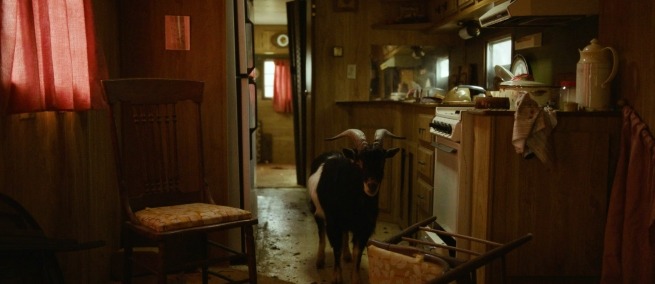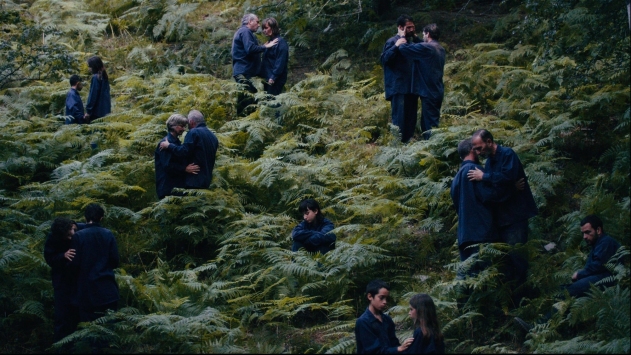
THE HUMAN HIBERNATION, the debut film by Anna Cornudella Castro, which made its world premiere in the Forum section of the Berlinale, winning the FIPRESCI award, is set in a world where, because of climate change, humans hibernate. The jury statement reads as follows: “In an age where the meaning of films is spoon-fed to the audience, it’s refreshing to see a very personal picture open to all kinds of interpretations. In this brave film shot in challenging surroundings, there are profound reflections on life, nature, family and humankind’s place in the world. Combining extraordinary sound design with delicate uses of photography, this never feels like the work of a first-time filmmaker.”
We attended the film’s world premiere in Berlin where Castro spoke about the film. It began as an art project, she explained. Castro was partially inspired by an article about spiders in Australia that overwinter and are doing so earlier and earlier because of climate change. “I got a grant for a research project, and the research was about how it would be if human beings were hibernators.” This project was the seed of THE HUMAN HIBERNATION. The film begins with a child emerging from hibernation when snow is still on the ground. It is too early. They search for others, screaming fruitlessly. Little by little, people awaken, talking about the long night, trying to make sense of new family configurations that emerge on awakening amongst those who manage to find each other. In one memorable scene, a family gorges wordlessly on a spread that could be drawn from an Old Master’s painting.

Still from THE HUMAN HIBERNATION with Clara Muck Dietrich, Demetrius Hollimon, Jane Hubbell, Brian Stevens, Neil O’Neil Solidago, Solidago River, Kris Koon, Dustin Bothwell. Courtesy of the Berlinale.
In the society Castro invents for THE HUMAN HIBERNATION, humans are decentered from the narrative. As much time is spent on the landscape, on the non-human animals that populate it, as on its human inhabitants. The humans that do populate the film barely speak, and when they do, they are reverent towards their animal kin. One character notes that they have to learn to communicate without speaking, like animals.
Castro spoke about her admiration for those who listen, and how there are narratives built “from religion, from science, about how nature works, and actually I feel that all these narratives take us farther from nature...” Gorgeous scenes of animals rewilding landscapes—in particular farm animals such cows, chickens, and goats—are given ample space and time to play out. “I really wanted to film animals and humans at the same level,” the filmmaker commented. At the end of the film, the credits note all of the animals that were filmed. No domesticated animals were used. The filmmakers worked patiently to film the scenes as they happened, blending documentary and fiction filmmaking practices.
THE HUMAN HIBERNATION is written and directed by Anna Cornudella Castro, co-writted by Lluís Sellarès, filmed by Arthur Pol Camprubí, edited by Marc Roca Vives, with music by Emili Bosch Molina. It stars Clara Muck Dietrich, Demetrius Hollimon, Jane Hubbell, Brian Stevens, and Neil O'Neil.
TOPICS